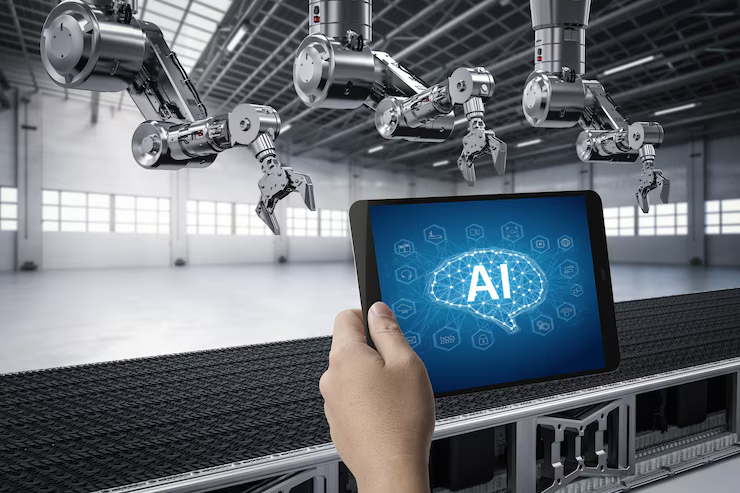Impact of AI on Creative Industries is transforming how content is created, designed, and delivered. At Magazine Grace, we explore how artificial intelligence reshapes creative expression in design, music, writing, and film production. Technology has become a collaborative partner for artists, providing innovative ways to boost their creative output and reach wider audiences.
From streamlining repetitive tasks to generating original ideas, artificial intelligence is making its presence known in all corners of the creative world. The impact of AI on creative industries offers new possibilities for artists and professionals to experiment, produce efficiently, and redefine what creativity can achieve in a digital era.
How AI Is Changing Artistic Processes
AI tools are assisting artists in creating digital art, composing music, and designing visuals faster than ever. With automation, tasks like editing, formatting, or animating now take less time, giving creatives more room for exploration and refinement.
AI and the Future of Content Creation
Writers, marketers, and filmmakers are using AI-powered platforms to brainstorm ideas, draft content, and even edit scripts. These tools support human creativity by suggesting improvements and creating personalized outputs that align with audience interests.
Enhancing Creative Productivity with AI Tools
Creative professionals use AI-based platforms to automate complex design and post-production processes. Tools that generate music scores, edit photos, and produce videos allow artists to finish projects quicker while maintaining high quality.
Challenges in Adapting AI to Artistic Fields
While AI provides exciting advantages, it also raises questions about originality, authorship, and authenticity. Some creatives feel the pressure to compete with algorithms, while others welcome AI as a supportive extension of their vision.
AI’s Role in Music and Film Innovation
From generating background scores to suggesting video transitions, AI helps streamline workflows in music and film. Producers now experiment with algorithm-driven styles that inspire entirely new genres and visual storytelling techniques.
The Economic Impact of AI on Creative Jobs
AI is creating demand for tech-savvy artists and hybrid roles like creative technologists. As the impact of AI on creative industries expands, so does the need for individuals who can blend creative talent with digital fluency and software skills.
FAQs
Q1. What is the impact of AI on creative industries?
A: AI is reshaping creative industries by enhancing production processes, inspiring new artistic ideas, and helping creatives work faster with innovative digital tools.
Q2. Can AI completely replace human creativity?
A: No, AI supports creativity but does not replicate the emotional depth, intuition, and imagination of humans. It is most effective as a tool that enhances human input.
Q3. How are designers using AI in their work?
A: Designers use AI for layout automation, concept generation, and personalization. These tools save time while maintaining consistent quality across design assets.
Q4. What ethical concerns come with AI in creative fields?
A: Issues like copyright, artistic ownership, and transparency around AI-generated content are major concerns. Discussions continue around fair use and human recognition.
Q5. Which industries are most affected creatively by AI?
A: Media, publishing, advertising, music, and film are seeing rapid transformation. AI’s role in these sectors is growing as tools evolve and become more accessible.
Conclusion
The impact of AI on creative industries is unlocking new possibilities in how art is made, shared, and appreciated. From speeding up workflows to suggesting new artistic directions, AI has become a dynamic companion for creators across various platforms. As the boundaries between technology and creativity continue to blend, the future holds endless potential for artists willing to explore new dimensions. Magazine Grace is committed to exploring this exciting evolution and guiding creatives through this digital transformation.

